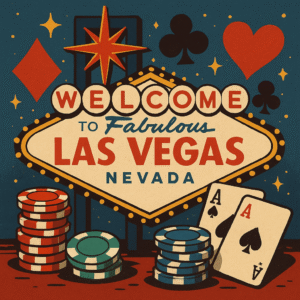
The Sociology of Poker: Communities and Cultures
Beyond the cards, chips, and strategic elements lies a fascinating sociological dimension to poker. The game has developed distinct communities, hierarchies, languages, and cultural norms that make it not just a game but a complex social ecosystem. This exploration examines poker through a sociological lens, revealing the rich social structures that have developed around this enduring card game.
Poker’s Social Ecosystems
Poker exists within multiple overlapping social environments, each with distinct characteristics and cultural norms.
The Casino Poker Room
Traditional card room cultures have developed unique social structures:
- Hierarchical arrangements based on stake level and recognized skill
- Regular player ecosystems with established relationships and reputations
- House personnel relationships including dealers, floor staff, and service workers
- Unwritten etiquette systems governing behavior beyond formal rules
- Status marker systems including recognition, table assignment, and comps
Home Game Communities
Private poker games create intimate micro-cultures:
- Friendship networks combining social bonding with competition
- Localized rule variants developing within specific groups
- Financial norm development addressing unique interpersonal dynamics
- Mixed-skill accommodation adapting to diverse player abilities
- Ritualistic elements including traditional snacks, music, or hosting patterns
Online Poker Societies
Virtual poker environments have generated novel community forms:
- Forum-based communities developing strategy and discussing industry
- Screen name recognition hierarchies establishing digital reputations
- Chat box communication norms varying across platforms and stake levels
- International player interactions crossing traditional cultural boundaries
- Staking and coaching networks creating economic interdependence
Tournament Circuit Communities
Professional and semi-professional tournament players form distinctive social groups:
- Road warrior camaraderie among traveling players following series
- Shared economic circumstances including backing arrangements and swap deals
- Information networks exchanging knowledge about venues and opportunities
- Status hierarchies based on results, skill recognition, and social capital
- After-hours socialization creating relationships beyond the felt
The Social Stratification of Poker
Like many communities, poker develops clear social hierarchies and class structures.
Status Markers in Poker Culture
Various factors determine social position within poker communities:
- Skill recognition from peers and established experts
- Financial success demonstrated through results and stake level
- Knowledge capital including strategy understanding and history
- Social connections with recognized high-status players
- Media visibility through broadcasts, streams, and publications
Stake-Level Social Classes
Distinct subcultures exist at different stake levels:
Micro-Stakes Communities
- Learning orientation with strategy discussion emphasis
- Achievement milestone celebration for bankroll development
- Aspiration-focused discourse centered on upward movement
- Broader demographic diversity including age, background, and motivation
- Higher proportion of recreational players with careers outside poker
Mid-Stakes Societies
- Professional/amateur mix creating diverse motivational environments
- Career sustainability discussions dominating community concerns
- Strategy refinement focus rather than fundamental concepts
- Regional circuit development creating geographical identities
- Lifestyle poker emphasis balancing profit with life enjoyment
High-Stakes Cultures
- Exclusivity and access limitations creating closed communities
- Business relationship complexity including backing and investment
- Media attention management as public recognition increases
- Elite network development connecting to gambling industry influences
- Financial scale distinctions separating from lower-stake experiences
The Language of Poker Communities
Poker has developed a rich linguistic tradition that serves both practical and social functions.
Terminology as Social Marker
Poker vocabulary establishes community boundaries:
- Specialized technical language describing strategic concepts
- Slang evolution identifying era and community of origin
- Regional dialect variations across different poker centers
- Historical terminology preservation connecting to poker traditions
- Exclusionary function differentiating insiders from outsiders
Communication Patterns and Norms
Different poker environments develop distinct communication styles:
- Table talk regulations – formal and informal rules governing speech
- Non-verbal communication systems – physical tells and their interpretation
- Dealer-player interaction protocols – proper communication with staff
- Conflict resolution mechanisms – addressing disputes and ethical issues
- Cross-cultural adaptations – accommodating international player bases
Narrative Traditions
Storytelling serves crucial functions in poker culture:
- Bad beat stories – cathartic sharing of variance experiences
- Historical hand recounting – strategic analysis through narrative
- Player reputation legends – developing community-known characters
- Origin stories – personal journeys into poker as identity markers
- Cautionary tales – warnings about bankroll management and lifestyle risks
Gender and Identity in Poker Communities
Poker’s relationship with gender, race, and identity reveals broader social patterns.
Gender Dynamics in Poker Spaces
Poker has traditionally been male-dominated with evolving gender relations:
- Historical exclusion patterns limiting women’s participation
- Contemporary inclusion efforts including women-focused tournaments and organizations
- Gendered behavior expectations affecting table dynamics
- Sponsorship and visibility disparities in professional representation
- Online/offline differences in gender-based treatment
Cultural and National Identities
National and cultural backgrounds influence poker communities:
- Playing style stereotypes associated with national origins
- Language barrier navigations in international tournaments
- Cultural approach differences to gambling and competition
- National poker traditions developing distinct regional scenes
- International cultural exchange through global poker events
LGBTQ+ Experiences in Poker
The poker community’s relationship with sexual orientation and gender identity:
- Historical challenges in traditionally conservative gambling spaces
- Increasing visibility of LGBTQ+ professionals
- Community support development through affinity groups
- Online vs. live environment differences in acceptance
- Advocacy evolution within poker organizations
Economic Sociology of Poker
Poker creates complex economic relationships extending beyond simple gameplay.
The Poker Economy
Various economic relationships form within poker communities:
- Staking arrangements creating investor/player partnerships
- Coaching marketplaces monetizing knowledge transfer
- Content creation economies through streams, articles, and videos
- Affiliate marketing networks connecting players to operators
- Service industries supporting professional players’ needs
Financial Ethics and Norms
Communities develop standards around money matters:
- Debt handling expectations addressing financial obligations
- Backing arrangement standards governing investment relationships
- Deal-making norms for tournament equity situations
- Angle shooting boundaries defining acceptable competitive advantages
- Wealth display attitudes regarding appropriate money presentation
Economic Mobility Narratives
Poker communities maintain stories about financial movement:
- “Rags to riches” archetypes celebrating dramatic success stories
- Cautionary downswing narratives warning of variance dangers
- Grinding legitimacy respecting consistent small-scale success
- Bankroll management morality treating proper practices as ethical matters
- Economic sustainability discourse focusing on long-term career viability
Digital Transformation of Poker Communities
Online poker created profound changes in poker’s social structure.
Virtual Community Formation
Internet poker generated new forms of social organization:
- Forum-based strategy communities developing collective knowledge
- Training site membership groups creating educational hierarchies
- Platform-specific subcultures with unique norms and practices
- Software-mediated interactions changing traditional social patterns
- Geographic boundary elimination creating truly international communities
The Streaming Revolution
Live streaming created novel community structures:
- Streamer-audience relationships developing parasocial connections
- Chat communities forming around specific poker personalities
- Strategy democratization through public analysis sessions
- Poker celebrity development creating new status hierarchies
- Financial support mechanisms through subscriptions and donations
Hybrid Community Evolution
Modern poker communities blend online and offline elements:
- Online relationship transitions to in-person connections
- Digital continuation of live event communities
- Multi-platform identity maintenance across different environments
- Technology-mediated live experiences through phones and social media
- Community boundary fluidity between virtual and physical spaces
Ritual and Tradition in Poker Culture
Poker communities maintain various ritualistic elements that create continuity and meaning.
Tournament Rituals
Competitive poker has developed ceremonial practices:
- Shuffle up and deal announcements signifying official commencement
- Bubble ceremonies recognizing final payment threshold
- Final table introductions formalizing culminating competition
- Bracelet and trophy presentations celebrating achievement
- Bad beat jackpot sirens announcing communal celebration moments
Superstition and Ritual Behavior
Players develop personal and community magical thinking:
- Lucky items including cards, chips, clothing or mascots
- Behavioral patterns like specific seating positions or card handling
- Avoidance practices preventing “jinxing” or “cooling off”
- Verbal affirmations or silence during critical moments
- Post-success or post-failure rituals processing outcomes
Community Celebration Events
Poker culture includes recognizable community gatherings:
- Award ceremonies recognizing achievement and contribution
- Memorial tournaments honoring community members
- Annual gathering traditions at major tournament series
- Industry parties cementing social relationships
- Charity events demonstrating community values
The Ethics and Values of Poker Communities
Poker cultures develop moral frameworks that extend beyond formal rules.
The Ethical Continuum
Poker communities develop nuanced ethical perspectives:
- Rule violation boundaries – clear cheating vs. procedural infractions
- Angle shooting debates – legal but ethically questioned behavior
- Information use standards – appropriate utilization of obtained knowledge
- Disclosure responsibilities – when communication is ethically required
- Treatment of recreational players – balancing predation and sustainability
Value Systems in Poker
Different poker subcultures prioritize different values:
- Meritocratic ideals – skill should determine outcomes
- Honorable behavior standards – maintaining integrity beyond rules
- Community responsibility – contributing to collective wellbeing
- Game preservation – ensuring long-term sustainability
- Knowledge sharing ethics – balancing personal advantage against group development
Ethical Evolution Over Time
Poker’s ethical standards have transformed with the game:
- Old-school self-governance relying on player enforcement
- Formalization period establishing official rules and procedures
- Corporate influence era as commercial interests shaped standards
- Digital ethics development addressing online-specific challenges
- Contemporary hybrid standards balancing tradition with modern requirements
Poker as Microcosm
The rich sociological dimensions of poker communities reveal how humans organize themselves around shared activities, creating meaning systems that extend far beyond the formal structure of the game itself. Poker cultures develop their own languages, ethics, hierarchies, rituals, and traditions—functioning as microcosms that reflect broader social patterns while maintaining their distinctive characteristics.
For researchers, poker communities offer fascinating sites for studying how people create order, meaning, and identity through voluntary association. For participants, understanding these sociological dimensions enhances not just the strategic experience of the game but also the sense of belonging to a rich cultural tradition with deep historical roots and complex social significance.
What appears at first glance to be “just a card game” reveals itself, upon closer examination, to be a sophisticated social ecosystem where the exchange of chips represents just one dimension of a multifaceted human experience that continues evolving while maintaining connections to traditions spanning centuries and continents.
Make sure to bookmark www.Letsgopoker.com and stay up to date about everything poker travel related and plan your next poker vacation with ease.
Check out this next article:




























